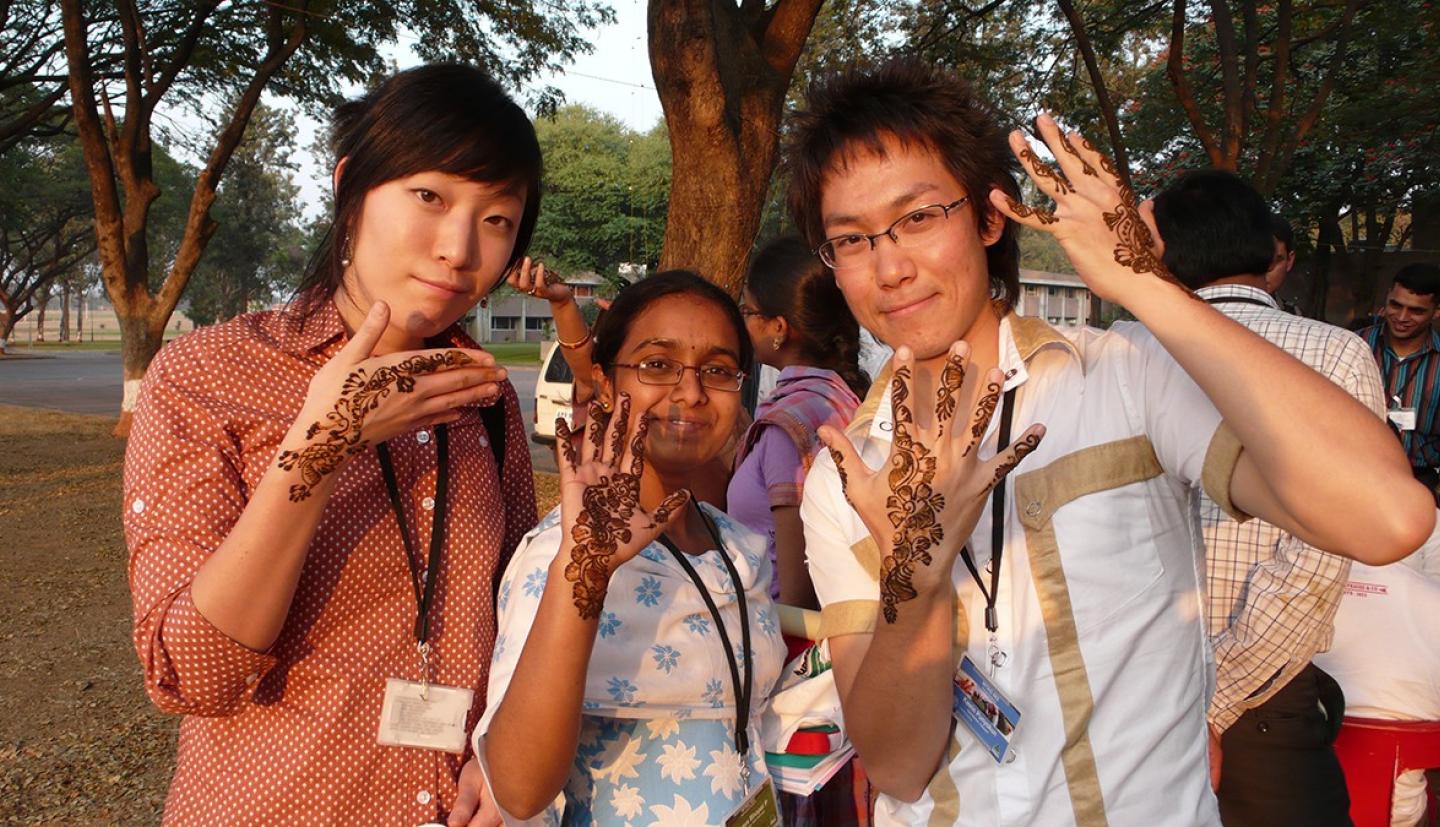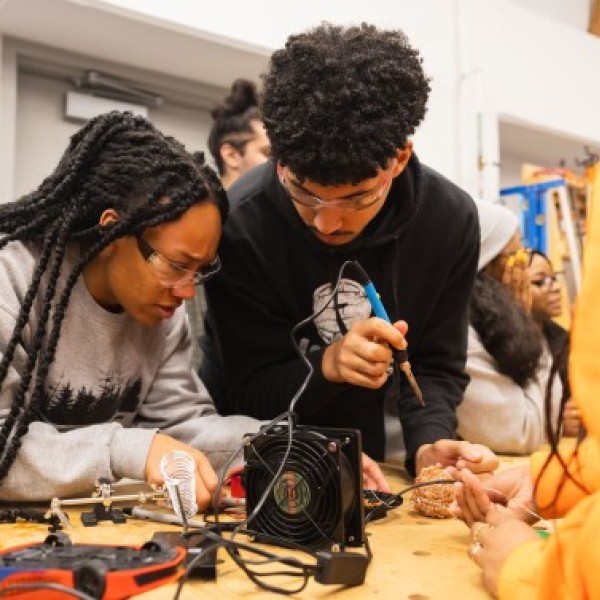As the bus carries Cornell’s International Agriculture and Rural Development 602 class through the streets of India, a Cornell student practices her Hindi with an Indian student from Tamil Nadu, as they bop to Ed Sheeran on a shared mobile phone. Shy to use language skills learned at Cornell, she soon finds herself being tutored by other Indian students and Tamil Nadu faculty. “Time for your lesson,” they say every day they board the bus. By the end of the second week, the Hindi/English class at the back of the bus has grown into a chattering group of young people. Many are now fast Facebook and WhatsApp friends, and destined for careers in international development careers.
Such is IARD602 – Cornell’s longest-running experientially engaged learning course. Run by International Programs in the College of Agriculture and Life Sciences (IP-CALS), the class turns 50 in 2018. Since 1968, the lives of more than 2,500 undergraduate and graduate students and hundreds of faculty members, from Cornell and partner institutions abroad, have been influenced by IARD602 – the first international course offered at Cornell.
“In the beginning, IARD602 focused mostly on production agriculture in the tropics,” said course director Ronnie Coffman, professor of plant breeding and director of IP-CALS. “IARD602 broadened to include socio-economic and development issues, and then expanded to provide insights into issues of globalization and transnational communities. The consistent thing about the course is that it often represents a life-altering experience for the students.”
“It is anything but a typical classroom,” said K.V. Raman, adjunct professor of plant breeding, who has been involved in the course since 2001. “As faculty, it is a very rewarding experience. Students learn in ways they can never read in a book or be exposed to in a class lecture. The experiential learning is highly appreciated by all.”
In 2018, from Jan. 5 to 19, 39 Cornell students will go to India and meet up with 12 Indian students, accompanied by 12 Cornell faculty and two Indian faculty members. Their first event is an IARD602 50th celebration Jan. 6 in Hyderabad, hosted by Sathguru Management Consultants, who have been intimately involved – “and absolutely critical to sustaining the course,” according to Coffman and Raman – since 2001, when the course first went to India.
The students have already self-selected their team of interest – Agricultural Systems, Rural Infrastructure, Value-Addition or Fiber Science. Learning opportunities will include visiting the Kothapaly Watershed, talking to cotton farmers, interacting with women’s weaving groups, visiting the Garag Village of handicrafters, accessing livestock and vegetable markets, and participating in cultural and heritage events.
Three courses in one
The interdisciplinary course adds an important leadership dimension to the education of B.S., M.P.S., M.S. and Ph.D. students who are interested in international careers. Undergraduate and graduate students who participate in IARD602 frequently alter their research or change the direction of their lives to pursue globally engaged careers.
IARD602 starts in the fall semester, with a campus-based two-credit course at Cornell for 45 to 60 students. Instructors include international professors across a range of agriculture and development disciplines. Over the last 16 years, the course has been taught collaboratively online and includes students and professors from several state agricultural universities in India.
Students then participate in a three-credit 20-day field trip abroad in January, where they visit in-country agricultural systems, value-added food enterprises, rural development agencies, animal husbandry, veterinary services, and fiber and other crafts. Professors facilitate interaction and learning experiences with local experts and partners.
“Student engagement with development practitioners, field researchers and rural people in the countries visited brings to life the issues and ideas that too often remain classroom abstractions,” said Raman. “Students and faculty benefit from the involvement of host country counterparts who help participants navigate the context-specific cross-cultural dimensions of development studies.”
Upon their return, students complete a three-credit spring semester classes and reflection paper on their experiences.
A history of engagement
Cornell’s international engagement of students became a reality five decades ago. In 2001, there were two 20-day courses: the original one, where students traveled to Latin America, and a second to India. Since 1968, students have traveled to Puerto Rico, the Dominican Republic, Mexico, Costa Rica, Honduras, Ecuador, India, Thailand and Myanmar.
Class participants are funded by a small endowment in IP-CALS, respective departments, faculty travel funds, Cornell Sathguru Foundation for Development, and students themselves.
Linda McCandless is communications director for IP-CALS.





